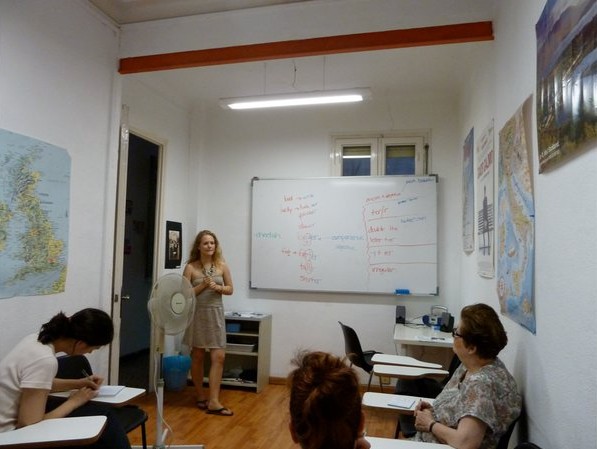This week, reader Shelby sent me this message:
I just studied abroad in Seville for 5 months and literally fell in love with Spain. I plan to move back in a year after I graduate college but am not exactly sure what to do as far as working so I can stay there for a long time. I was wondering if you had any tips or suggestions on how to live and work in Spain… I’d really appreciate it! Gracias!”
What Shelby wants to do is exactly what I did – I graduated college and moved right to Spain. I’m lucky, as I have dual nationality (I’m British-American) and two passports. That meant all I did was show up, take my European passport to get my NIE (a piece of paper foreigners need to work), and look for a job.
For other people who aren’t so lucky to have an E.U. passport, there are other ways to get to Spain. There are scholarships like the Fulbright, or programs like the Auxiliares North American Langauge & Culture Assistants or CIEE’s Teach in Spain that can get you to Spain. (Be careful though, because some of these programs are cutting back due to la crisis).
Some English academies I worked at or heard of did not request any paperwork from their professors, and you can teach private classes under the table. I met people who came and just overstayed their 90-day tourist allowance. But you could potentially run into some fairly visa and passport issues.
Keeping those problems in mind, here’s a guide to finding an under the table job in Spain.
In terms of looking for work once you’re in Spain, going door-to-door or talking to people seems to be the best way. You can also use internet listings.
I wrote a more detailed piece here about the resources you can use to find work as an English teacher, both at academies and as a private instructor.
Right now I’m working as a translator at a gossip website, which I found online on LingoBongo. I’ve also gotten job offers through sending out my resumé for jobs advertised online, walking around passing out my resumé, posting ads online for English classes, and chatting to people at bars or parties.
Being a good job candidate is basically the same as it is everywhere (have experience in what you want to do, don’t be crazy, etc.), but I’d definitely recommend speaking at least some Spanish. For people who don’t, it adds quite a bit of stress and obviously limits their employment options.
The economy does suck right now, but there are a surprising amount of jobs available, particularly for foreigners. As a foreigner, you have a different skill set, so it may be easier to find a job. For example, my employers wanted a native English speaker who spoke fluent Spanish, preferably one who had spent time in the U.S. There aren’t many Spaniards who fit this description.
So, there are lots of ways to get to Spain! It’s a fun, cheap country to live in with a lot of great opportunities. I hope my little guide helped out. If anyone else has other tips, please add them in the comments. ¡Suerte a todos!
If you’re American, here’s a great article by Liz from Memoirs of A Young Adventuress:
It has tons of tips and tricks for finding paid work without a visa. There are definitely lots of ways, it just might take a bit of work at first!
I hope this has been useful for people who want to know how to live and work in Spain. Please feel free to post any other questions in the comments!
Besos!
-Jess







Good points! Nice post, Jessica.
Thanks Marcia! I wish I could’ve included more information about visas though, because I know that’s a big issue. Still, there are ways to make it happen.
Which online company are you using? I’m interested in trying to teach online but there are so many!
So far, I’ve mostly used sites that are specific to Spain, though I have found things through Linkedin for teaching online. If you join teaching English-specific groups, there are always job offers for Skype classes and stuff like that.
Thanks for the shout-out Jessica 🙂
You’re welcome, you have a great guide for people who need a visa!